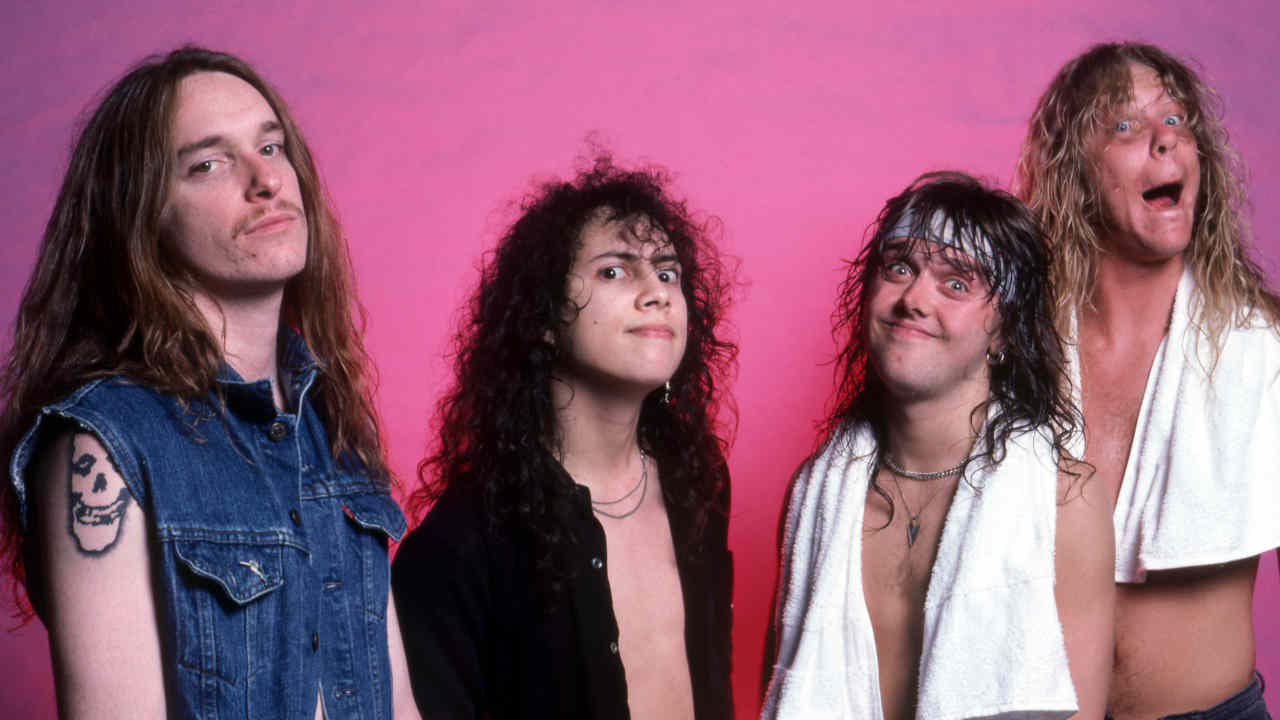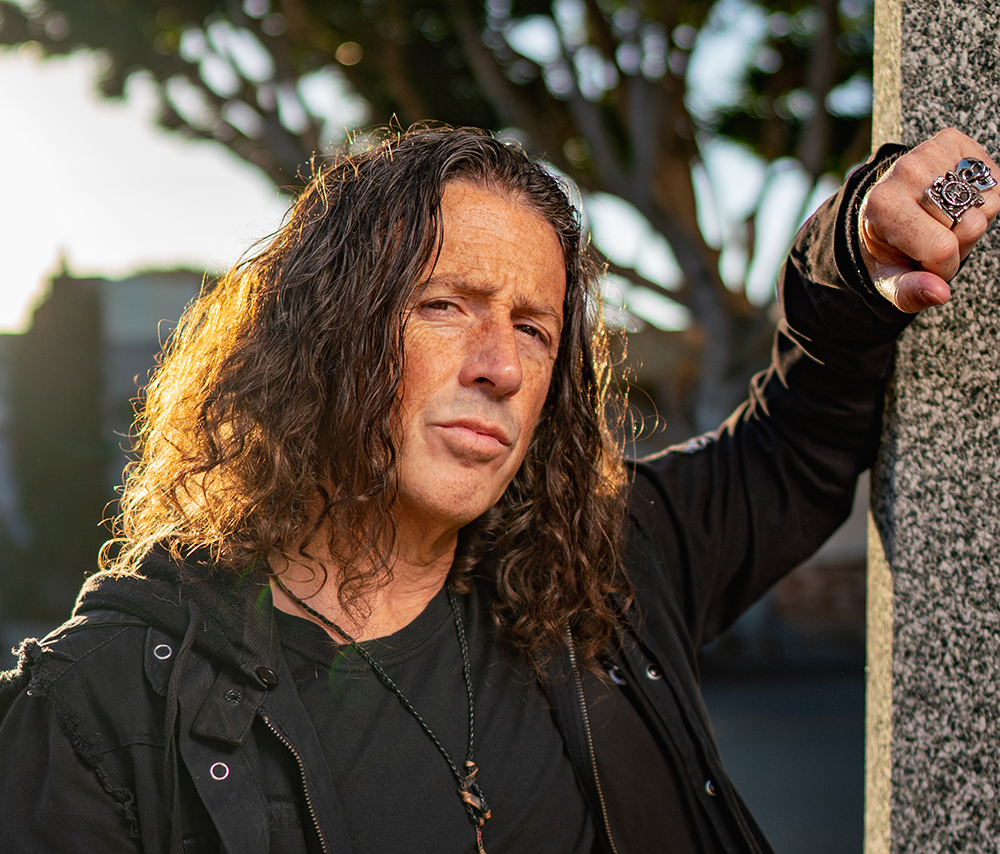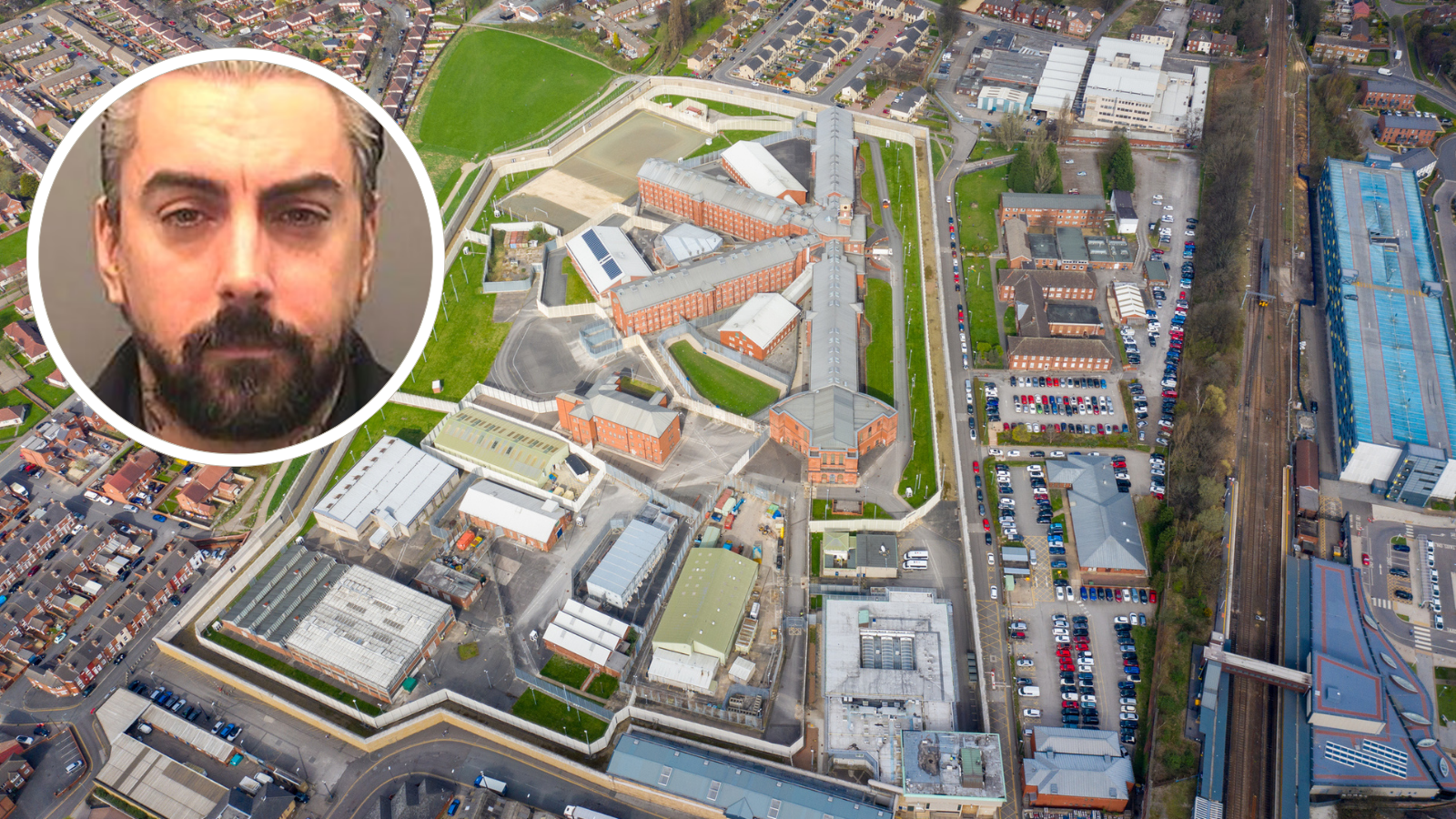How Metallica’s Master Of Puppets became metal’s new gateway anthem
Metallica’s thrash classic Master Of Puppets went from being an epic anti-drug song to a surprise 21st century viral hit

Hot off of the meteoric success of 1984’s Ride The Lightning, the boys in Metallica — singer/guitarist James Hetfield, guitarist Kirk Hammett, bassist Cliff Burton and drummer Lars Ulrich — found themselves in a curious position. Bursting with fiery ambition and lofty compositional ideas, by the summer of 1985, they had effectively outgrown thrash, just as that very scene had begun to explode. But they were never going to abandon their roots; the goal was always to push themselves and indeed, the entire genre, forward. Their third album would be a crucible in which they would forge all of the speed and aggression of their first two releases with vibrant new melodies, incisive lyrics and riffs so tasty they stuck to the roof of your mouth. Today, the Master Of Puppets album is viewed as the unqualified high point for a band whose career plays out as a series of high points - and nothing exemplifies its brilliance as perfectly as the album’s anthemic title track.
It was the summer of 1985 and on July 13, the band gathered around the television to watch Live Aid from their party pad and shared living space in El Cerrito, a sleepy California town just north of Oakland. They watched sets from the likes of Black Sabbath, Status Quo and a re-formed Led Zeppelin and the next day, they retreated to the garage where they bashed out the first round of demos for what would ultimately become the new album. Among these was a rough instrumental that would soon be revved up, stretched out, pumped full of blazing riffs, jaw-dropping solos and anthemic lyrics. It was called Master Of Puppets.
Metallica had sussed that Master Of Puppets would be the title track of their forthcoming new album. That September, they decamped to Sweet Silence studio, in Copenhagen to record the new album with producer Flemming Rasmussen. For the title track, they went all in. Building off of its main riff, the band added a dizzying array of tempo changes, solos, grooves and lyrics until settling on its final form. Instinctively, they realised that they had tapped into something genuinely poignant and they understood that they had to absolutely nail it. “It was all about getting it tight," Ulrich said in 2017. "It's gotta be tight! Every guitar track has to be totally tight to the other guitar tracks!” Indeed, for a song built on heavily-distorted guitar parts, the riffs are taut, compressed and utterly lethal. To give the riffs that lean sense of attack, Rasmussen summoned some studio trickery, directing the band to tune their instruments slightly lower so that, when recorded with fast-moving tape, the resulting track would be in tune. "We banged it out a couple of times and decided on the one with the best feeling," the producer told Rolling Stone, "because they'd have to play it live." Of course, “live” does not equate to “simple.”
Comprised of four distinct movements and clocking in at a total of eight minutes and thirty-five seconds, Master Of Puppets begins with “the riff” — that taut, distorted power chord, followed by three sharp, descending chords before ripping into the track’s galloping 4/4 groove. From there it plays out with unrelenting aggression in a standard verse/chorus format until fading at the echo of “Master!” at 3:30 and melting into the spiralling, dual-fretted harmonies of the next movement. Aching with visceral melancholic beauty, the solo builds into a second duet before the two guitars coalesce in a siege of bone-crushing power riffs, followed by a key change and new verses beginning with “Master...Master...Where’s the dream that I’ve been after?” The next movement erupts with another flamethrower solo, a bridge in the middle of that solo and, finally, a connection back to “the riff.” At this point, the modern rock blueprint would have directed the band to hit the chorus two more times and fade out, but Metallica were writing a new rulebook. Instead, nearly seven minutes into the song, they introduce another new verse, pile into the pre-chorus and then take one more triumphant run at the chorus. Fittingly, the song drives to its finish with “the riff,” finally ending with an echo-drenched melange of the band laughing and a spectral wash of reversed guitars.
At nearly nine minutes — double the length of most mainstream rock songs of that time — the track would draw practically zero radio attention. But its extravagant length is intrinsic to its power; stitched together, the separate parts play out with cinematic grandeur, with moments of frenzied aggression balanced by interludes of arresting fragility. It was an audacious move for a hard-partying, give-no-fucks band known for dispensing some of the fastest and heaviest music of their day. But it underscored the take-no-prisoners mindset of the Metallica camp — they weren’t interested in easy; the harder, the better. In Mick Wall’s Metallica biography, Enter Night, Lars explained, “In the past we’d do a rough version of a song and I’d go home and time it and go, ‘It’s only seven and a half minutes!’ I’d think, ‘Fuck, we’ve got to put another couple of riffs in there...If we can make the number a bit longer, a bit more interesting, and still make it work, then why not?”
Lyrically, Master Of Puppets is a cautionary tale about drugs and the terrifying loss of free will experienced by someone in the throes of addiction. Hetfield captures the devastating sense of powerlessness wrought by the disease in a highly-poetic manner, creating a dialogue of betrayal between the addict and his drugs, who have become his Master. In 1988, Hetfield told Thrasher magazine, “Master Of Puppets deals pretty much with drugs. How things get switched around, instead of you controlling what you're taking and doing it's drugs controlling you. Like, I went to a party here in S.F. [and] there were all these freaks shooting up and geezin' and this other girl was real sick...” One of the song’s most famous lines — “Chop your breakfast on a mirror” — was inspired by their old friend Rich Burch, who often crashed at their house in El Cerrito and who would wake up on the floor of the house and greet the day with a fresh line of blow.
Hetfield was quick to clarify that Metallica were never going to be an anti-drug band, explaining, “we don't want to tell anyone what to do. If people are into it that's cool, they wouldn't mind about the subject we're talking about.” Years later, Hammett would succumb to and recover from cocaine addiction. Ulrich has also publicly discussed using the drug for years before finally stopping on his own and Hetfield has candidly acknowledged his own experiences with addiction and recovery.
Sign up below to get the latest from Metal Hammer, plus exclusive special offers, direct to your inbox!
Master Of Puppets is one of only two tracks on the album that is credited to all four musicians (along with Damage, Inc.) and it held a special place for Burton In 1986, he stated, “My favourite song is Master Of Puppets. I think it’s the best Metallica song yet.” The world would soon agree. The first time that Metallica played Master Of Puppets live was literally days after they finished recording the album. Metallica were playing the San Francisco Civic Auditorium on New Year’s Eve in 1985 for 7,000 rowdy revellers and it was an immediate hit. Master Of Puppets easily earned a spot on Metallica’s setlist when they headed out on tour in March, 1986, appearing second (after Battery) every night, just as the two songs appear on the album. Today it remains the fan-favourite. It’s Metallica’s most-played live song and the album after which it is named has received platinum certification several times over.
While included in endless Metallica video compilations and live DVDs, Master Of Puppets has also appeared in a number of movies and television shows, including Old School, Zombieland: Double Tap, Billions, American Dad, The Simpsons and Any Given Sunday. In 2022, the track experienced a feverish rebirth, however, courtesy of Stranger Things, which employed the track in a pivotal scene in season four’s final episode. *Mild spoiler in the next sentence*: in the instantly-classic season 4 scene, the mega-popular character Eddie Munson shreds his way through the track as a diversion while his friends execute the final stage of their plan. It was actually the second time that Stranger Things used a Metallica song; an episode of season 2 featured The Four Horsemen. The Internet all but broke, with fans dousing the moment in hyperbole, proclaiming it, “one of the most iconic scenes in television of this year,” one of the “three best needle drops of the year,” and even, “the greatest scene of all time.”
Overnight, a new generation of fans who were wholly unfamiliar with the band suddenly turned on to Metallica. A thin swath of grouchy metalheads lamented the attention as an unwanted intrusion into metal culture but most metalheads welcomed the celebration, filling up social media with their own memories of when they first heard the band. Even Metallica got in on the fun, releasing a split-screen Instagram video with them playing live along with the scene while wearing the 'Hellfire Club' shirts from the show. The post notched over a million likes in a matter of days. In the “Zero Surprise” category, Master Of Puppets promptly re-entered the top 50 in both the US and UK. A week later, it cracked the Billboard Hot 100 for the first time ever.
The track remains the cornerstone of the band’s canon and it’s hard to envision a proper Metallica gig without it. Destined to endure for decades to come, Master Of Puppets is a milestone of recorded music, a generational anthem and simply one of the greatest metal songs ever written.
Hailing from San Diego, California, Joe Daly is an award-winning music journalist with over thirty years experience. Since 2010, Joe has been a regular contributor for Metal Hammer, penning cover features, news stories, album reviews and other content. Joe also writes for Classic Rock, Bass Player, Men’s Health and Outburn magazines. He has served as Music Editor for several online outlets and he has been a contributor for SPIN, the BBC and a frequent guest on several podcasts. When he’s not serenading his neighbours with black metal, Joe enjoys playing hockey, beating on his bass and fawning over his dogs.

